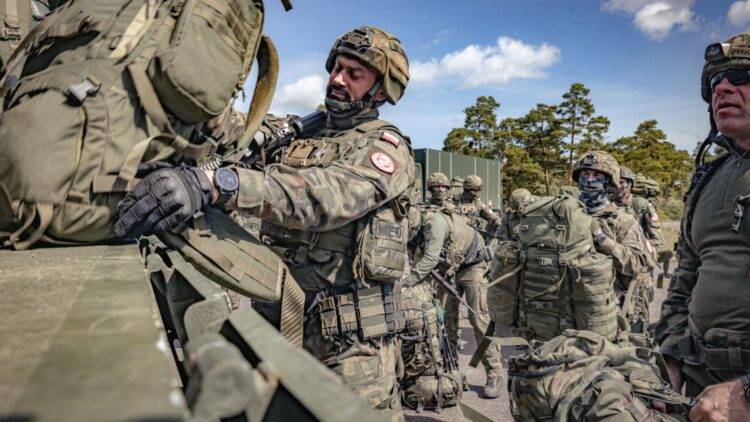Poland is deploying approximately 40,000 soldiers along its borders with Belarus and Russia as regional tensions heighten in advance of large-scale Russian and Belarusian military drills scheduled to begin Friday.
The move follows a significant escalation on Wednesday, when Polish and Dutch military aircraft were mobilized to shoot down Russian drones that encroached on allied airspace.
According to officials, the upcoming Zapad 2025 exercises will involve tens of thousands of Russian and Belarusian troops, many operating alarmingly close to NATO’s eastern frontier. “Poland has been preparing for the Zapad 2025 maneuvers for many months,” Deputy Defense Minister Cezary Tomczyk said in an interview with national media. He emphasized that Polish armed forces—alongside NATO allies—have already completed training exercises to ensure a swift and effective response if necessary. “Let’s remember that Zapad 2025 is an offensive exercise,” Tomczyk added.
Concerns have rippled through defense circles in Warsaw and among NATO partners that the drills could serve as cover for more aggressive moves against NATO or EU members. Polish Foreign Minister Radosław Sikorski described Russia’s planned scenarios as “very aggressive,” recalling that similar exercises preceded Moscow’s invasions of both Georgia in 2008 and Ukraine.
In an additional effort to bolster national security, Poland has decided to temporarily close its border crossings with Belarus throughout the Zapad exercises and, following this week’s drone incident, announced that some closures will remain “until further notice.” The government continues to reinforce the so-called Suwałki Gap—a strategically critical corridor connecting Poland and Lithuania that separates Belarus from the Russian exclave of Kaliningrad. The gap is widely viewed within NATO as particularly vulnerable to hostile incursions.
Tension along the border has been a persistent reality for several years, exacerbated by a migrant crisis blamed on Minsk and Moscow. European officials accuse the two governments of orchestrating the movement of Asian and African migrants toward the EU’s eastern border in an attempt to destabilize the region. The resulting humanitarian crisis has claimed dozens of lives and drawn scrutiny from international human rights groups.
Despite the strained relations between Warsaw and Minsk, Polish military officials confirmed that Belarusian authorities provided advance warning about the drone incursion that triggered Wednesday’s air defense response. General Wiesław Kukuła, Chief of the General Staff, described the warning as both “helpful” and “surprising” given the ongoing hostilities.
As the Zapad drills commence, Poland and its allies are bracing for further provocations, determined to respond with “deadly seriousness,” as senior officials put it. The situation remains fluid, with regional security, humanitarian, and diplomatic consequences still unfolding.


















